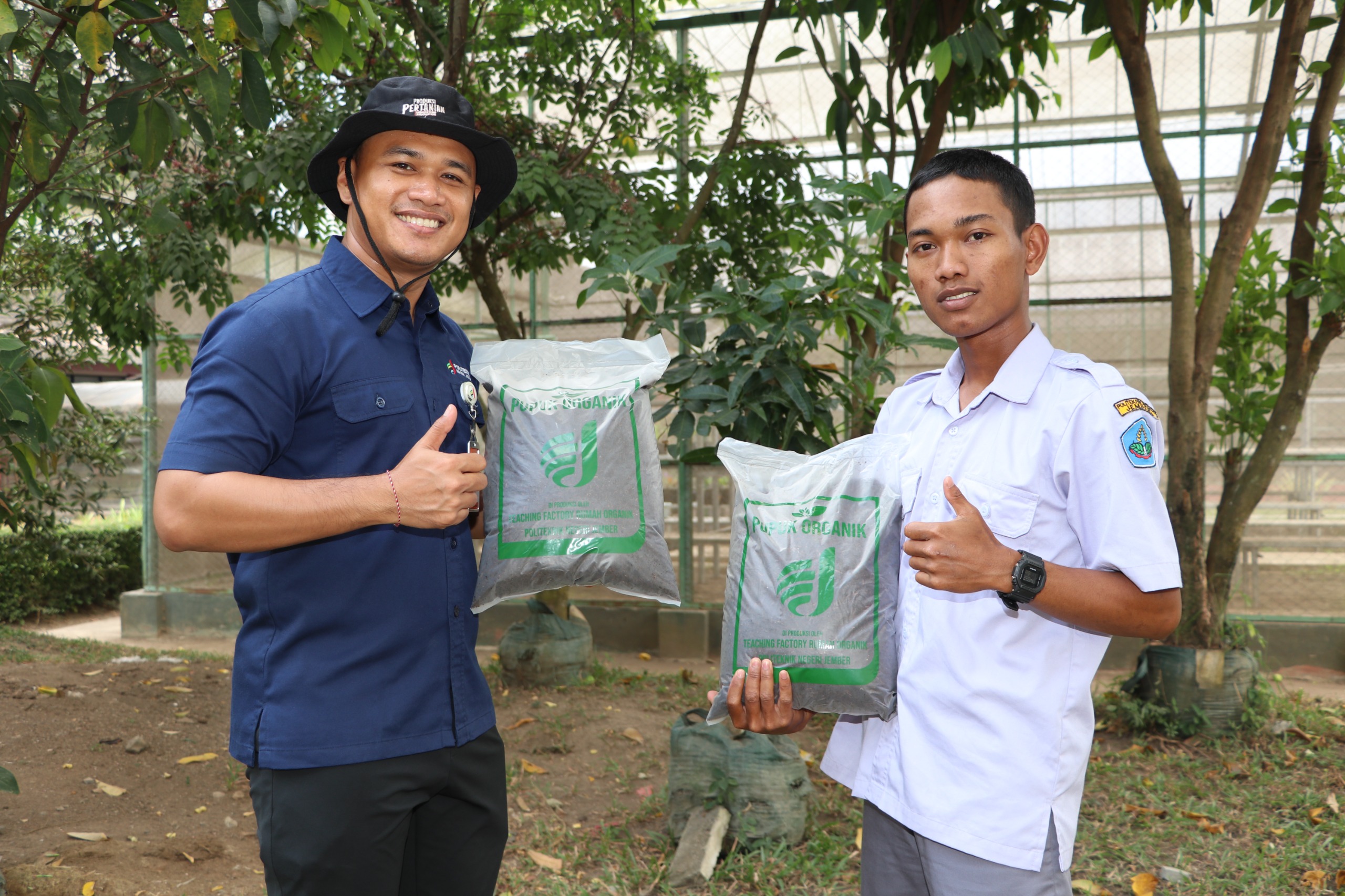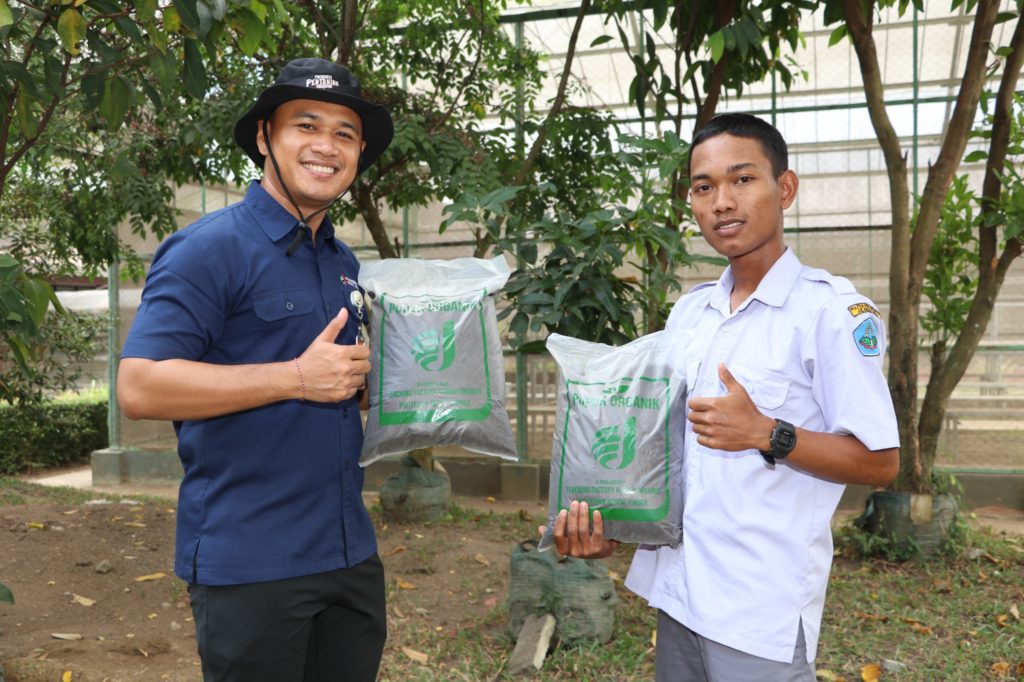

Politeknik Negeri Jember (Polije) continues to show its commitment in supporting the go-green program through various environmentally friendly initiatives. One of the concrete steps taken is to process organic waste generated in the campus environment into high-quality organic fertilizer. This program is a collaboration between lecturers and students from the Horticultural Crop Production Study Program (Prodi) which focuses on sustainable resource management.
The organic waste processed includes food scraps, leaves, and other organic waste that is often found in the campus area. In addition, the team also utilizes animal manure from the Teaching Factory (Tefa) Feedlot and Polije Dairy Cows as additional raw materials in the fertilizer making process. With this approach, Polije not only reduces the volume of organic waste that must be disposed of, but also creates value-added products that are beneficial for agriculture and greening.
Hanif Fatur Rohman, S.P., M.P., one of the lecturers actively involved in this project, explained that this initiative was born out of concern for the campus environment which produces a lot of organic waste.
“We see the great potential of the organic waste around us. Instead of letting it go to waste, we thought of turning it into organic fertilizer that can be reused, especially for horticultural purposes,” said Hanif.
According to Hanif, the organic fertilizer produced has significant advantages over chemical fertilizers. One of the main advantages is its ability to accelerate plant growth without causing negative effects on the soil.
“This fertilizer is made from completely organic ingredients, so it is safe and does not damage soil fertility. Instead, the soil becomes more fertile and healthy with the use of this organic fertilizer,” he added.
The process of making this fertilizer is carried out under the direct supervision and guidance of lecturers, but students are also actively involved in every stage, from collecting raw materials, processing, to packaging the final product. This not only gives students practical experience, but also instills the values of sustainability and environmental responsibility.
The organic fertilizer product produced by this team has now become one of the flagship products of the Tefa Rumah Organik Polije pilot. The product is not only marketed in the campus environment, but has also penetrated a wider market, namely plant shops in Jember and its surroundings. The response from the community was quite positive, especially from farmers and plant lovers looking for an environmentally friendly alternative to fertilizer.
Hanif and his team are not stopping here. They have plans to continue developing this product so that it can be produced on a larger scale.
“We hope to increase the production scale of this organic fertilizer so that it can meet wider needs. That way, we not only contribute to waste reduction and greening, but also open up new economic opportunities for Polije and the surrounding community,” Hanif said with optimism.
In addition, the team is also developing research to improve the composition of organic fertilizer to make it more effective and efficient. The hope is that this fertilizer can be a solution to various agricultural problems, especially in terms of increasing crop yields without damaging the environment.
“We believe that with the right research, this organic fertilizer can be one of the solutions for sustainable agriculture that is urgently needed today,” Hanif concluded.
This innovative program not only shows Polije’s commitment in supporting the go-green program, but also proves that universities can play an active role in creating real solutions to environmental problems. In the future, Polije plans to continue developing similar programs that integrate education, research, and community service with sustainability issues. (rda)